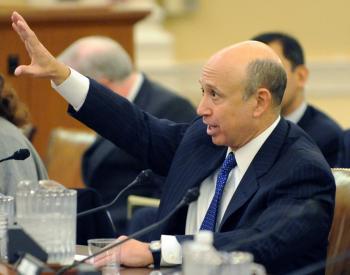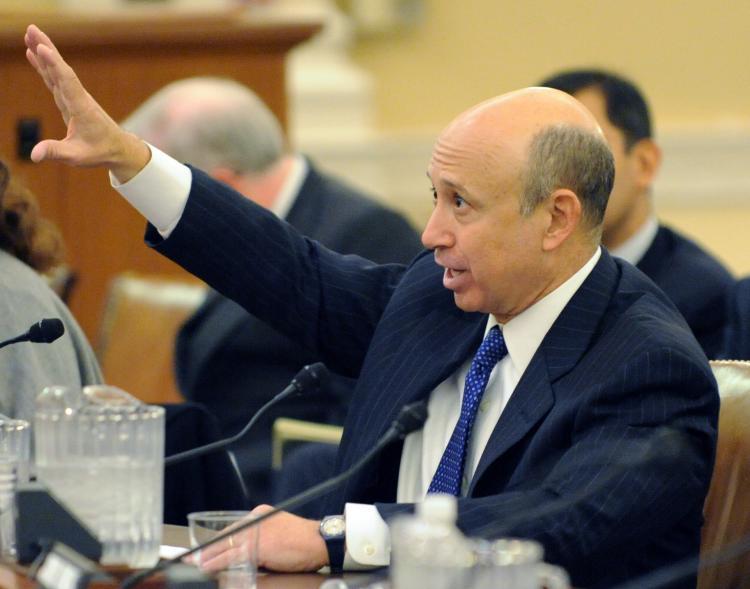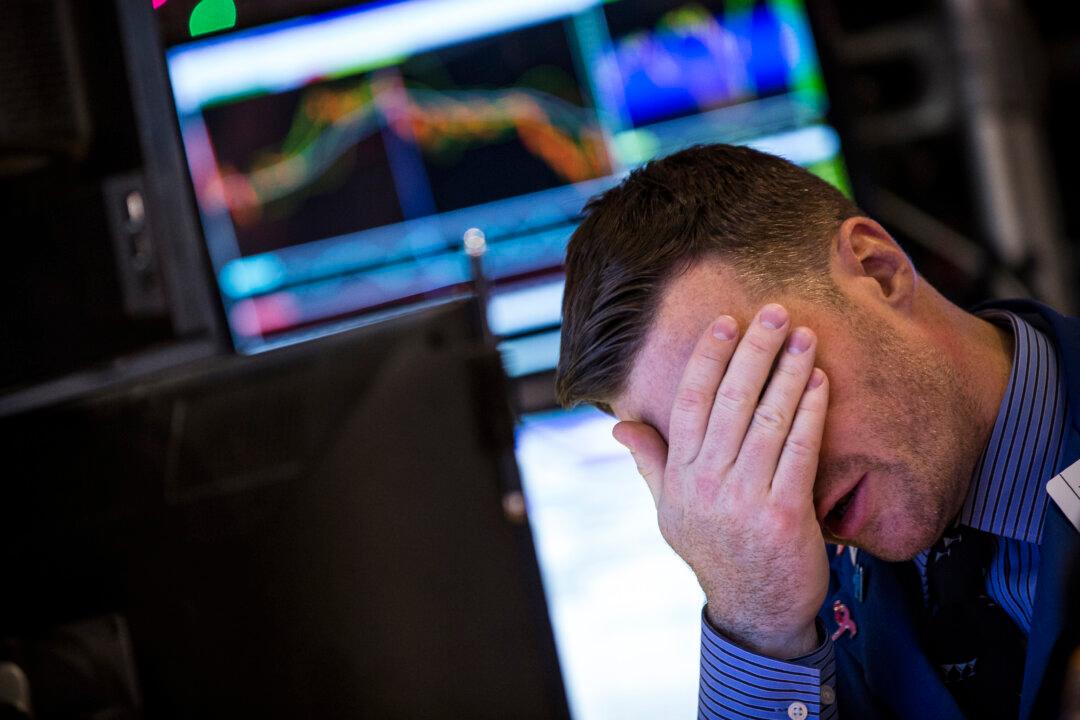Wall St. Execs Get Stock Bonuses in Show of Restraint
After a record-breaking year and speculation of a $100 million bonus payout, Goldman Sachs Group Inc. CEO Lloyd Blankfein is taking home a relatively modest $9 million bonus in deferred stock options, the company said last Friday.

REWARDED: Lloyd Blankfein, CEO of Goldman Sachs, testifies during a public hearing of the Financial Crisis Inquiry Commission. Blankfein will be paid $9 million in bonuses for 2009, all in deferred stock. Tim Sloan/AFP/Getty Images
|Updated:





